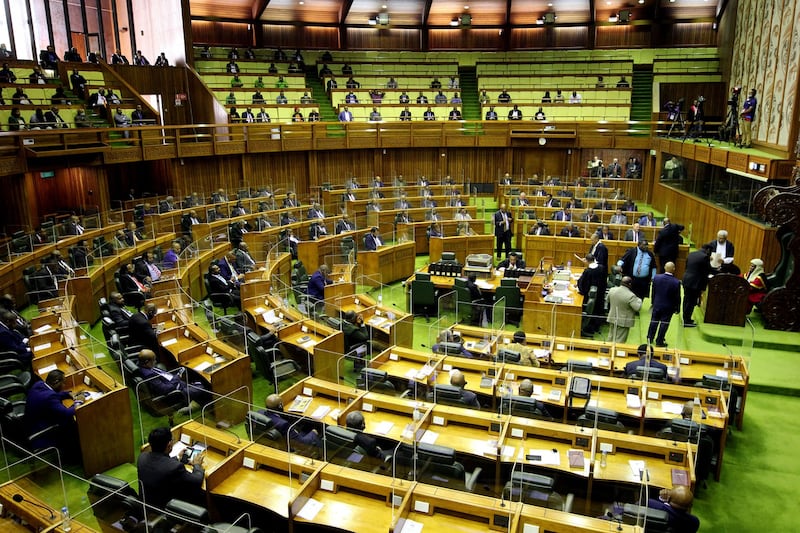Papua New Guinea’s prime minister was backed by three quarters of legislators in a parliamentary confidence vote Thursday, following riots last month that highlighted the Pacific island country’s tenuous hold on stability.
The motion of confidence in Prime Minister James Marape was introduced by a government lawmaker and supported by 84 of the Parliament’s 111 members. Opposition parliamentarians, who had been attempting to get the legislature to debate and vote on a separate motion of no confidence in Marape, stormed out of the chamber.
“If you have the numbers [to defeat me], produce your numbers,” Marape said after the vote. Lawmakers who walked out were “imbeciles and cowards,” he said.
Papua New Guinea's capital Port Moresby was engulfed by chaos on Jan. 10 after its police stopped work to protest a cut in the pay of government employees that was purportedly caused by a payroll system glitch.
At least 16 people died during the looting and arson that caused a severe blow to an economy already failing to provide sufficient jobs and incomes.
Several government lawmakers defected to the opposition in the aftermath of the riots. Criticism of Marape’s administration has also mounted recently because of alleged corruption in crucial infrastructure projects, as well as the perennial failure to create jobs and lift living standards.
The opposition could still get Parliament to vote on a no-confidence motion and Marape said the government wouldn’t stand in the way of the processes. A new government would need to be formed by lawmakers if Marape lost a no confidence vote, which currently seems unlikely.

Separately, the country’s attorney-general has asked the Supreme Court to review whether the no confidence motion sought by the opposition is consistent with the constitution or a “vice through which political instability is promoted through opportunistic machinations outside the electoral cycle,” according to a court filing.
Papua New Guinea is the most populous Pacific island country with an estimated 12 million people and endowed with significant mineral and other resources. But it has struggled to develop economically because of corruption, poor infrastructure, frequent tribal violence and deep inequality for women.
It has one police officer for about every 1,800 people, nearly four times less than the level recommended by the United Nations to ensure law and order, according to a Griffith Asia Institute report released last year. The ratio of police to people has declined substantially in the past half century as Papua New Guinea’s population tripled.
The country is increasingly the focus of China-United States rivalry for influence in the Pacific. It signed a wide-ranging defense cooperation agreement with the U.S. last year that could bolster the U.S. military presence in the region, but doesn’t help the country address challenges such as tenuous law and order and grinding poverty.
Marape became prime minister following national elections in 2022 that were marred by violence and dozens of deaths. His PANGU party is the largest bloc in the governing coalition.
New governments in Papua New Guinea have an 18-month grace period during which motions of confidence can’t be introduced – a convention intended to reduce political instability. The grace period for Marape’s government ended earlier this month.
Marape on Thursday said the government has crucial challenges to address including lack of jobs for the burgeoning youth population.
BenarNews is an RFA-affiliated online news organization.
